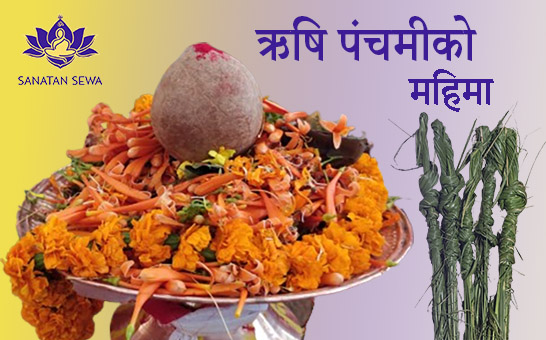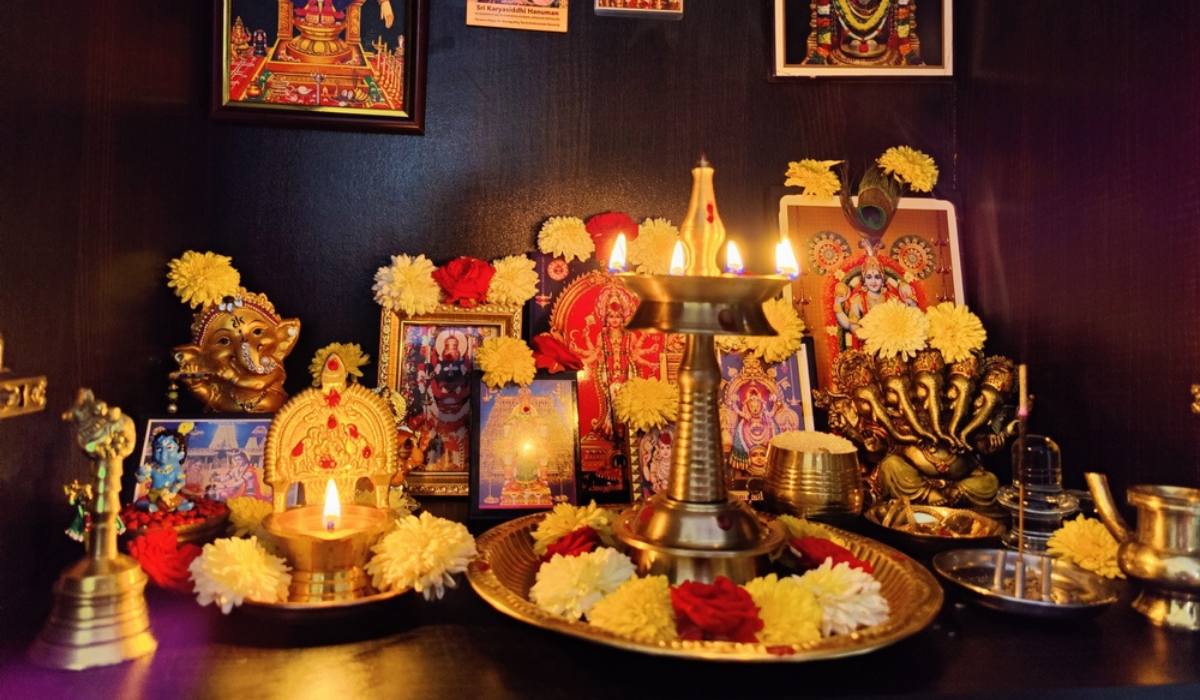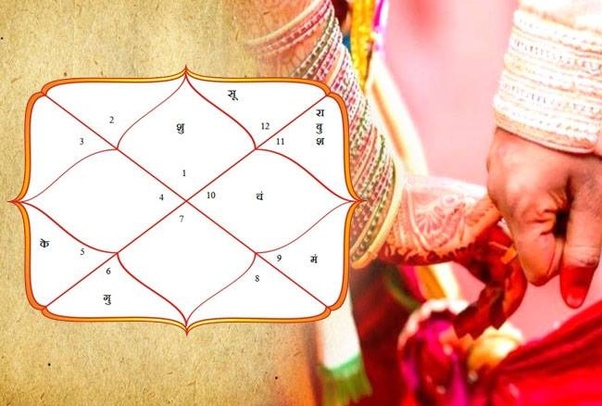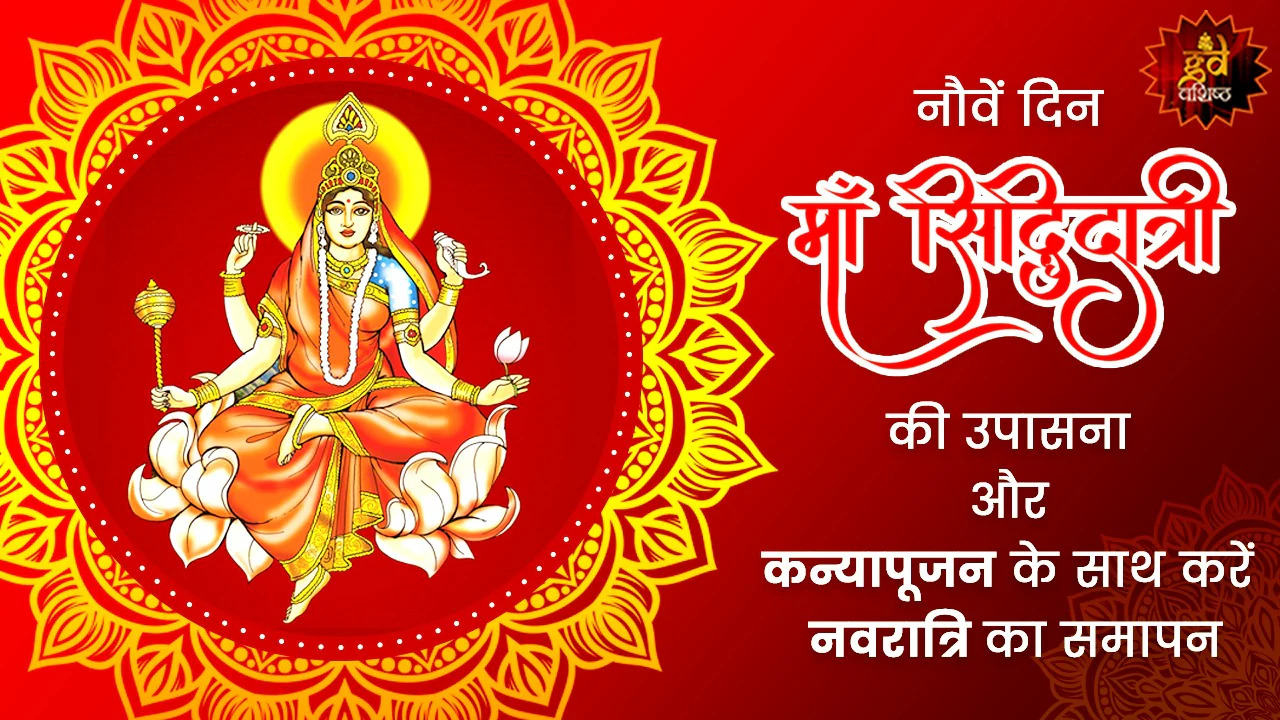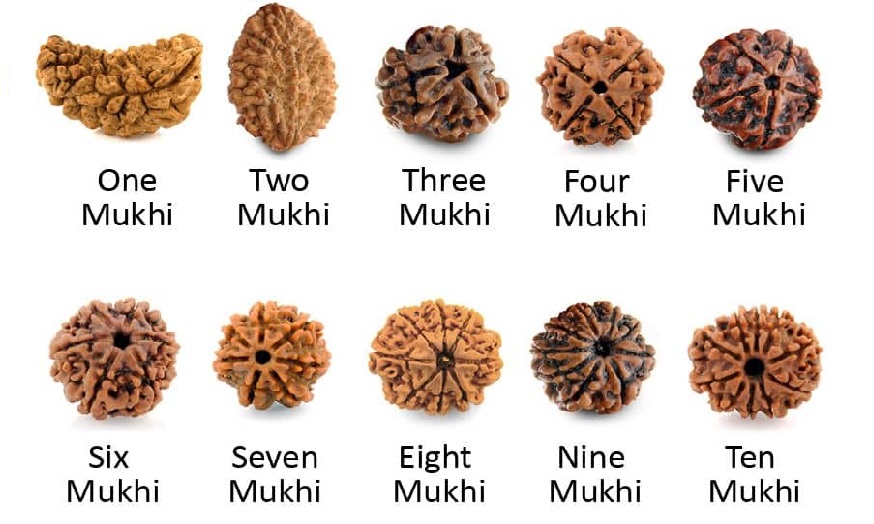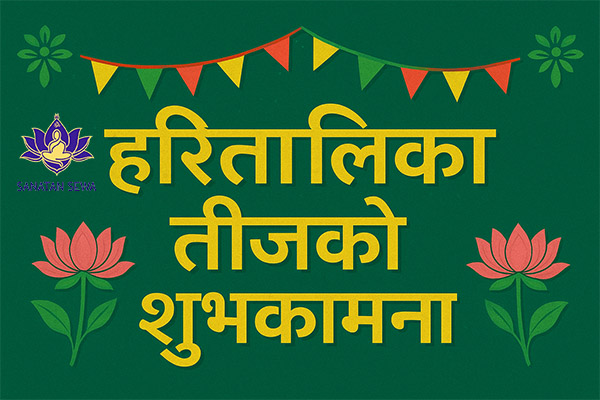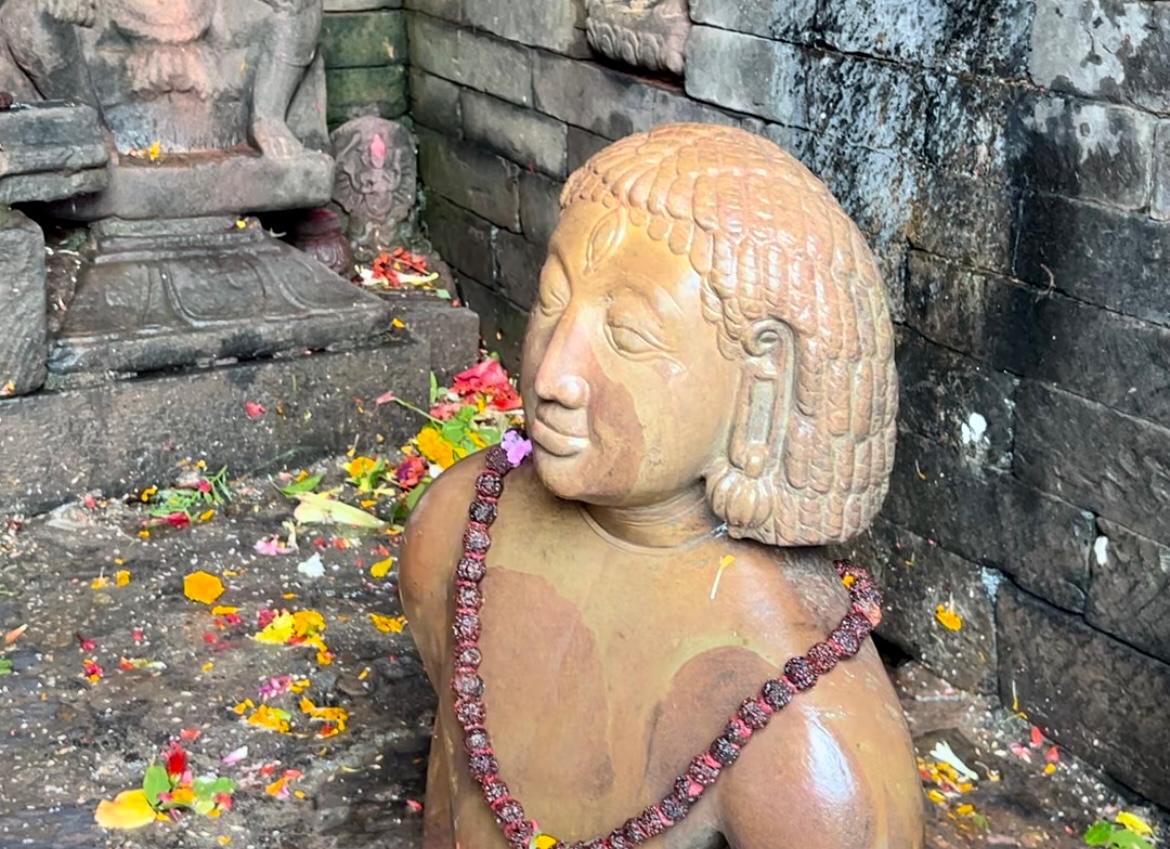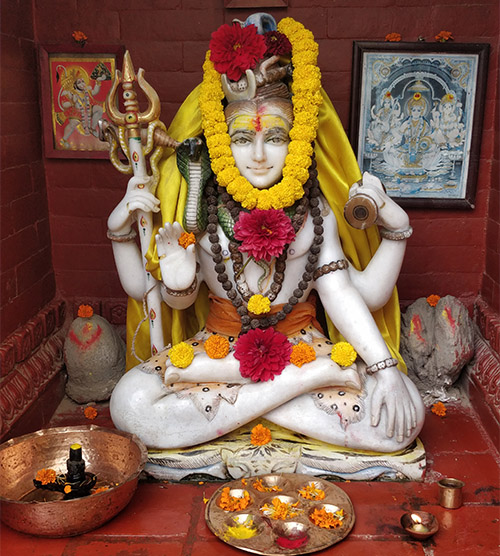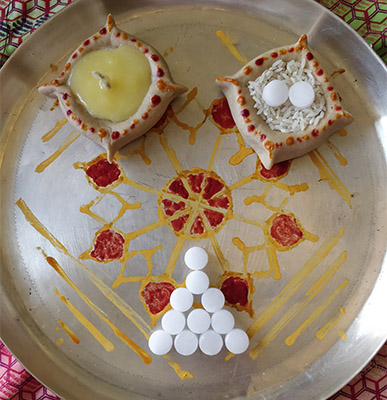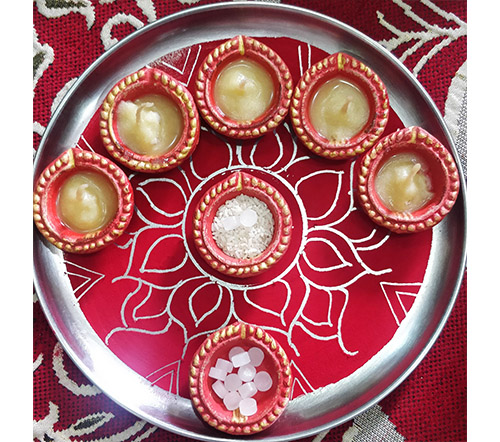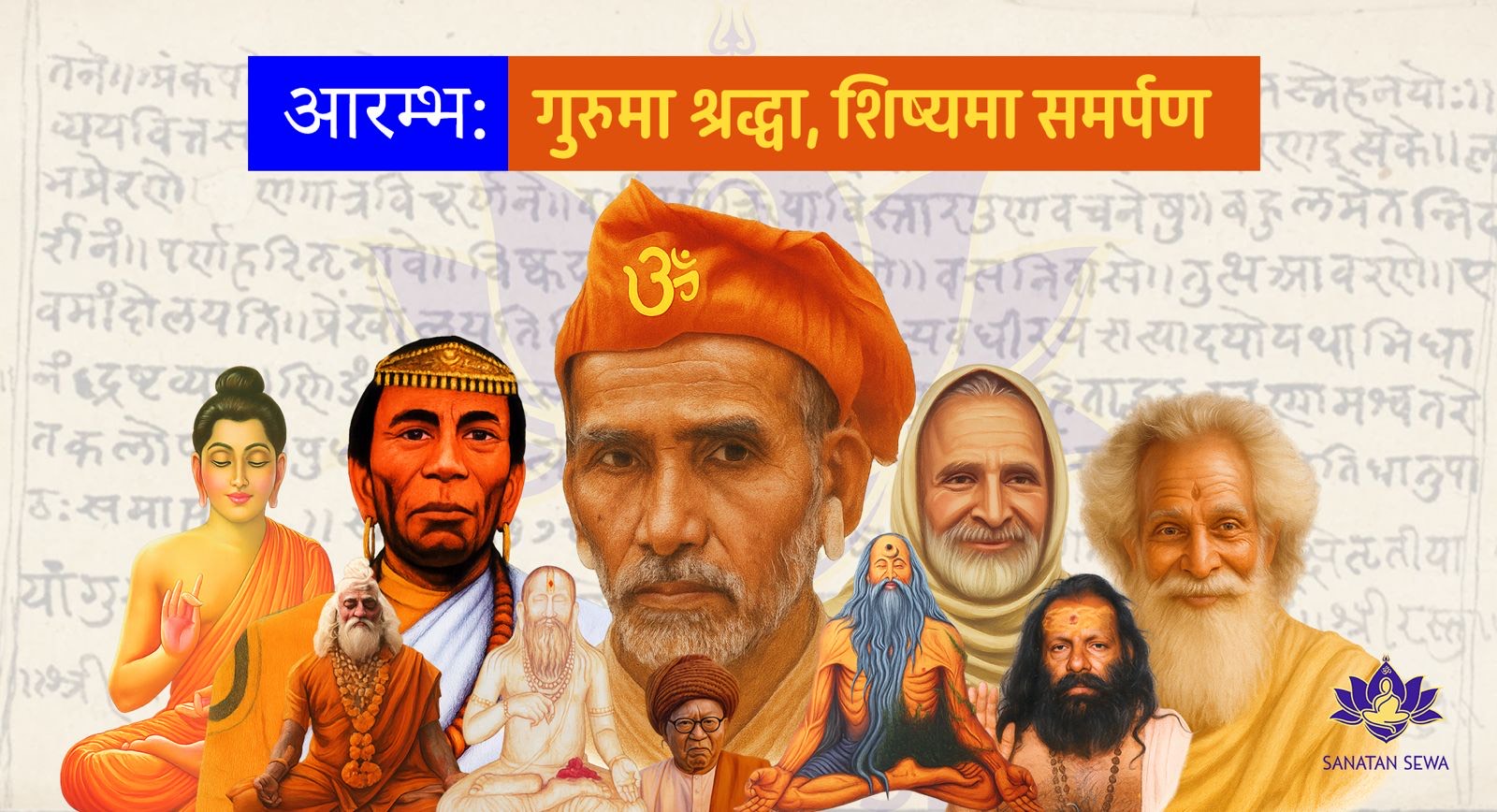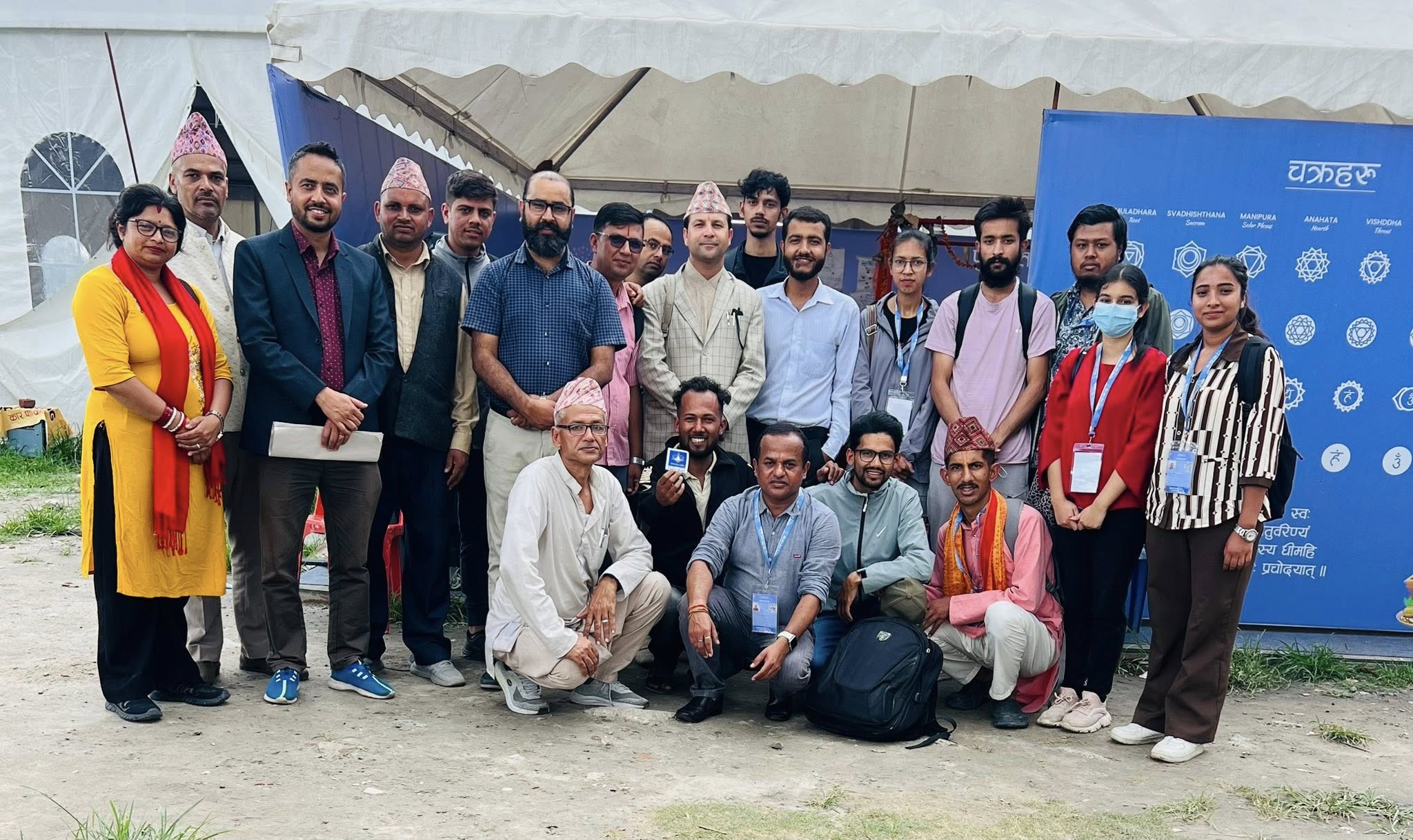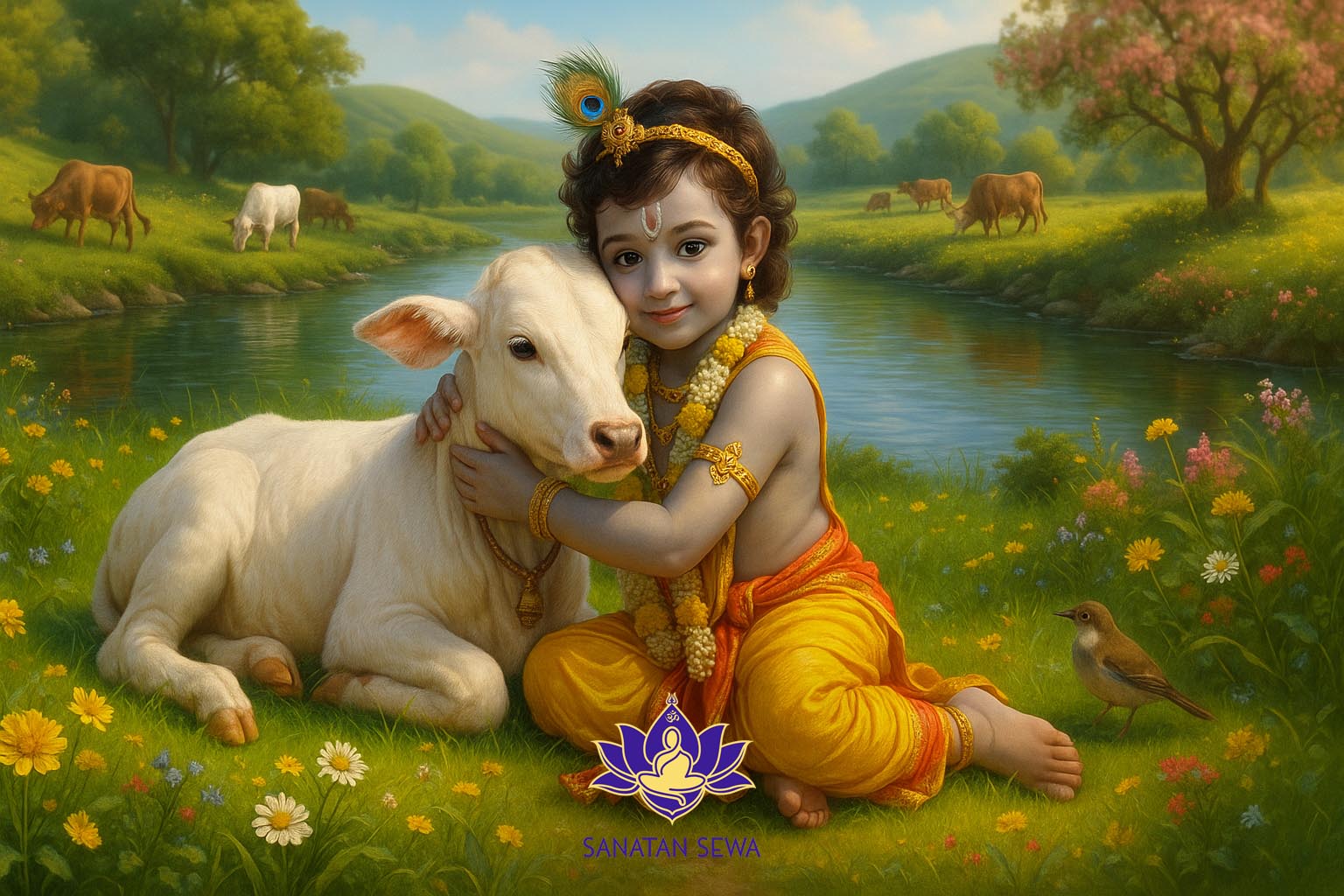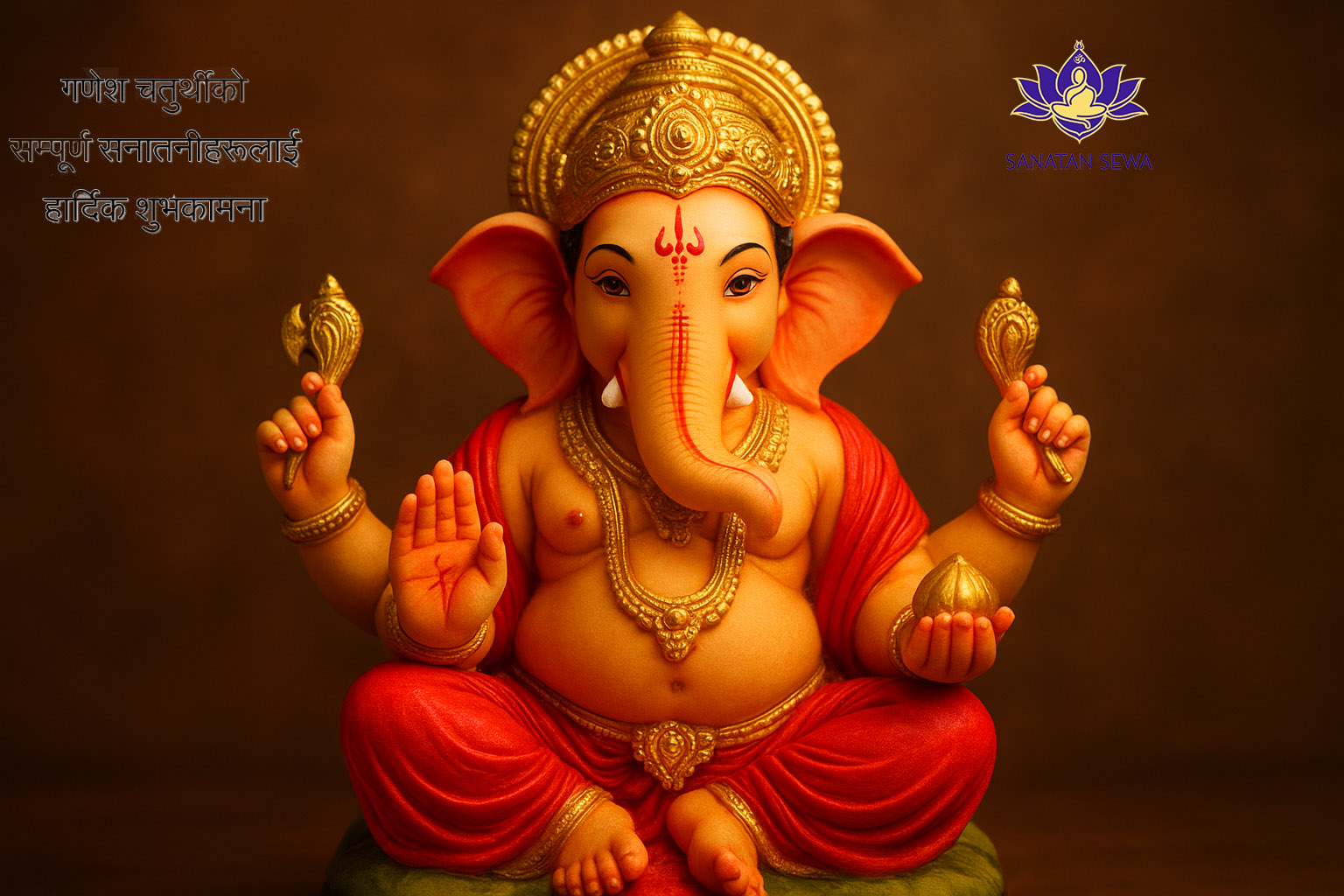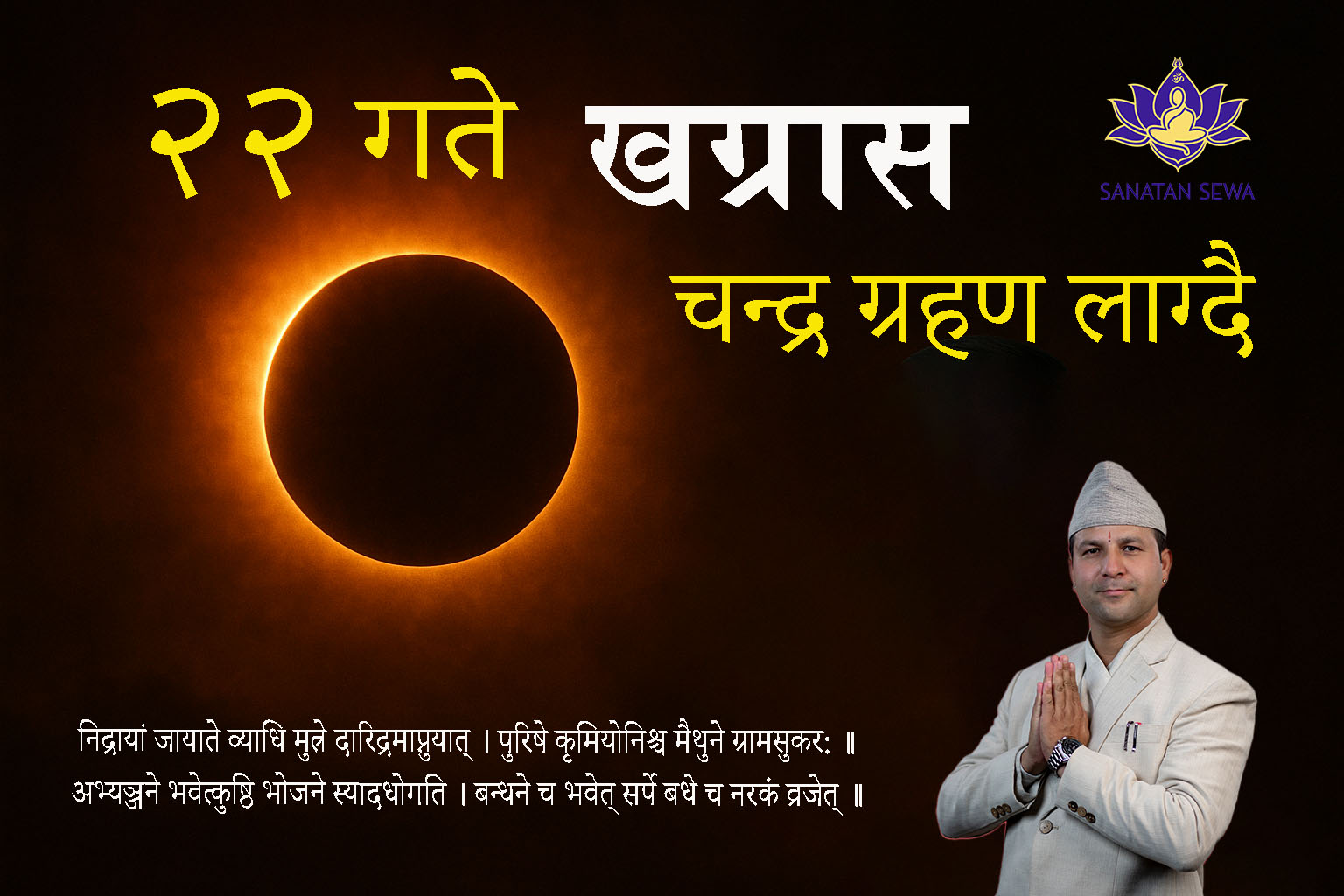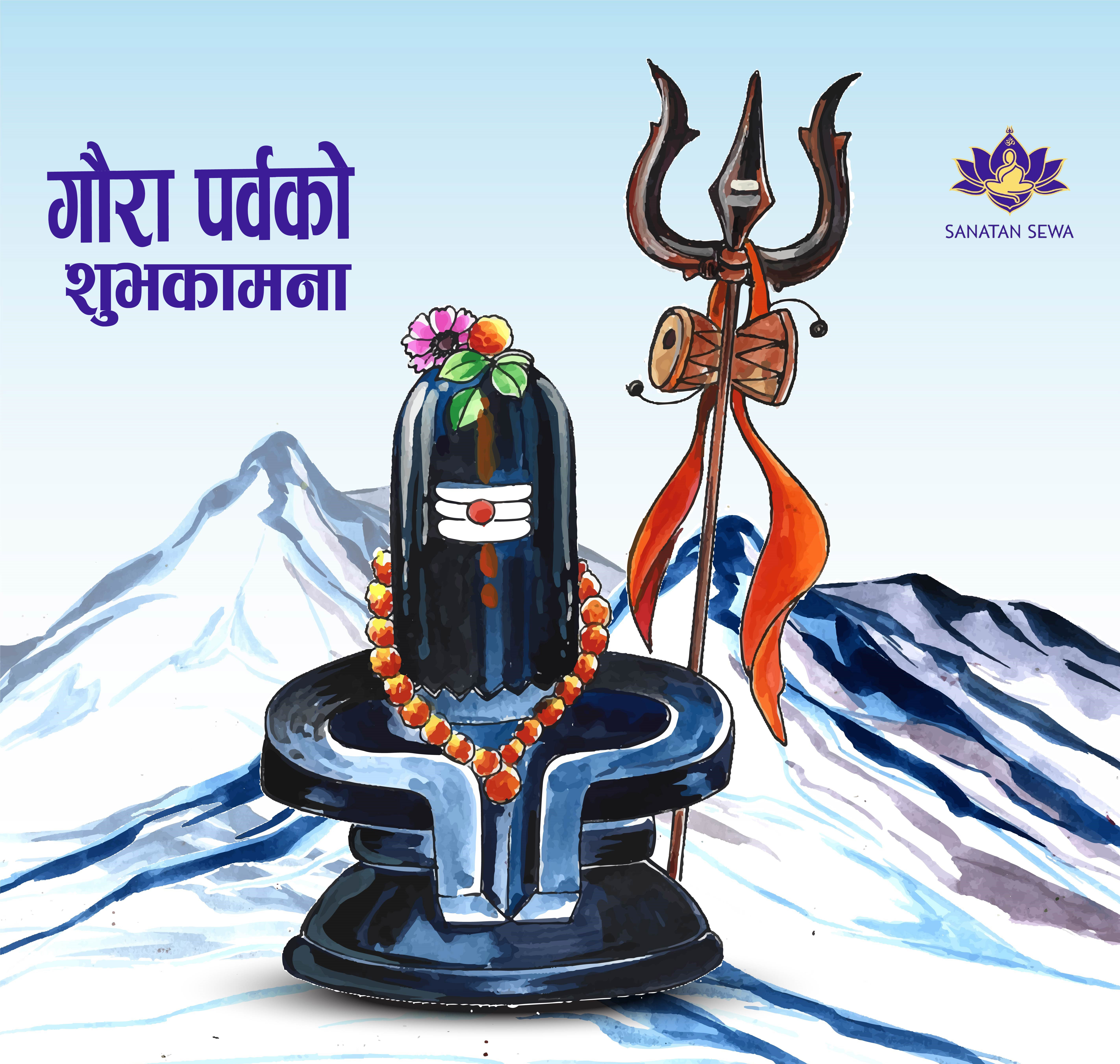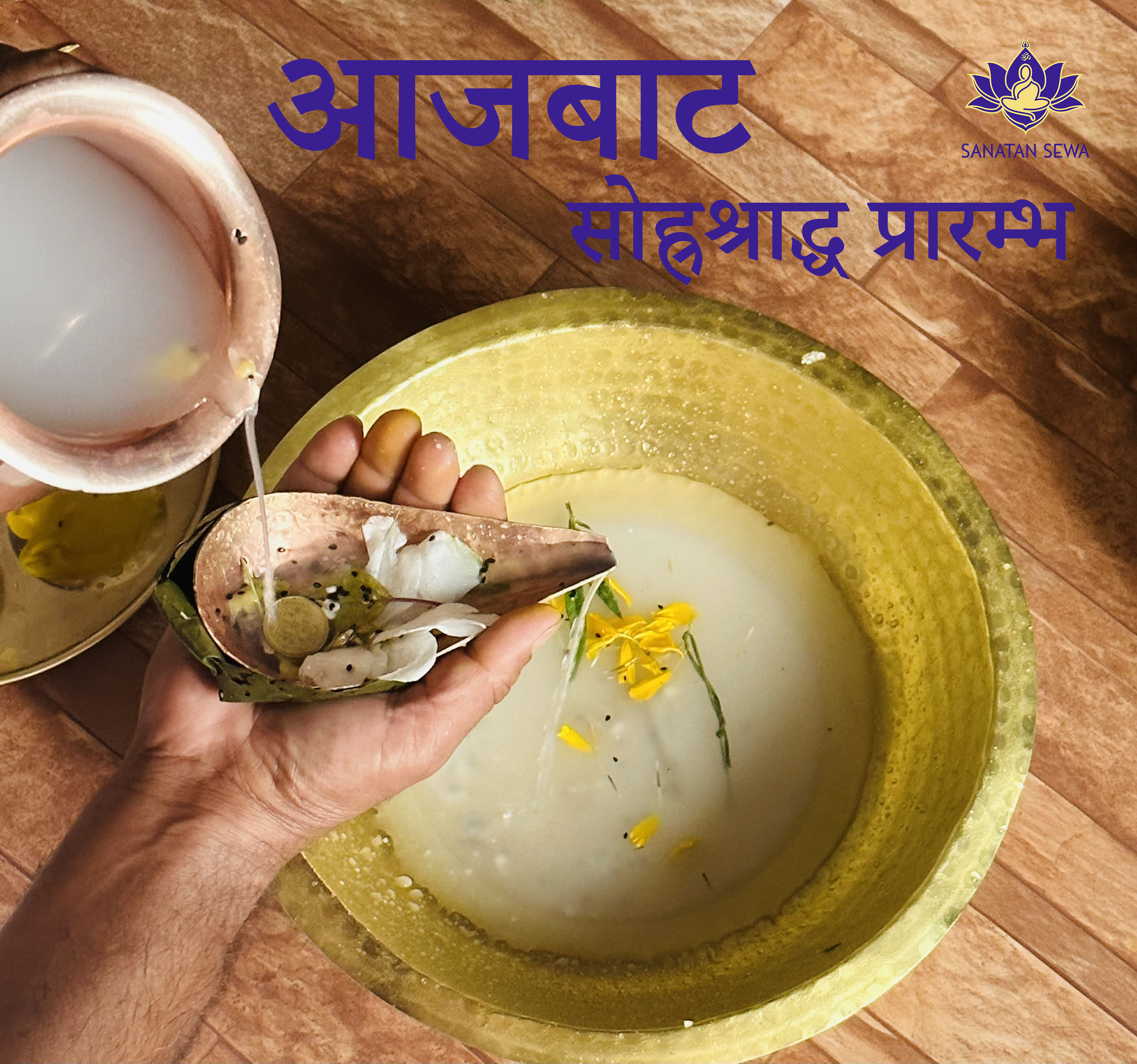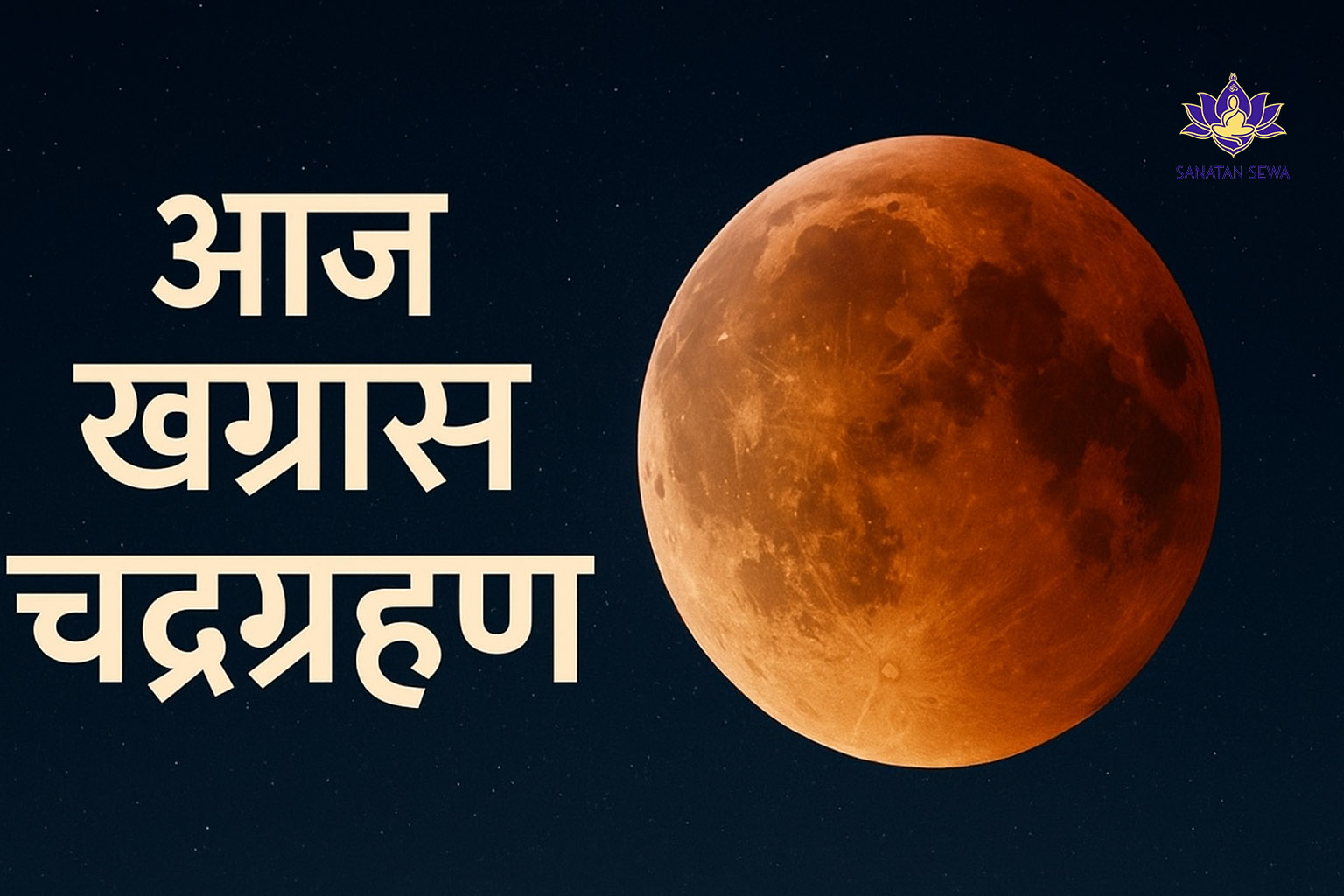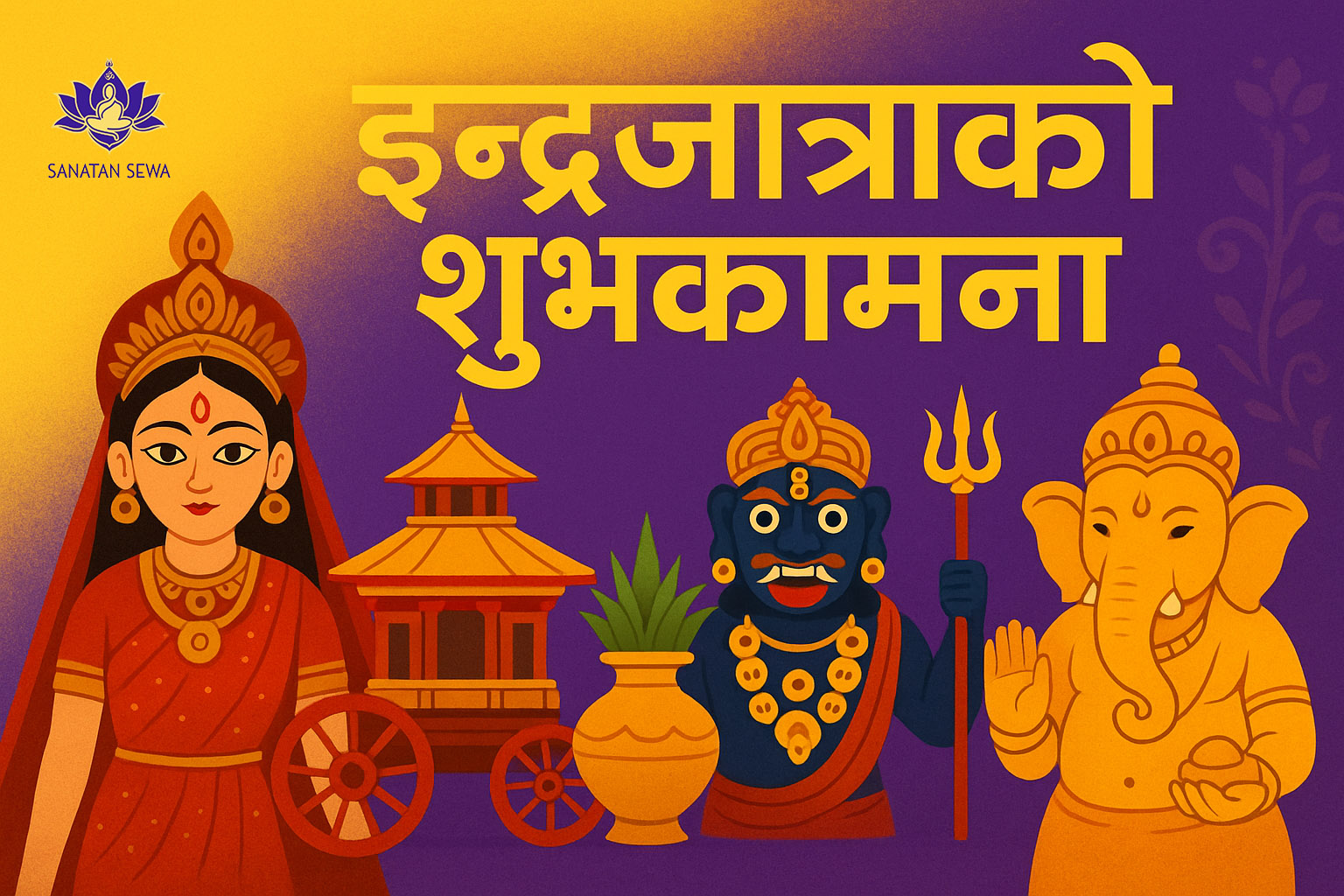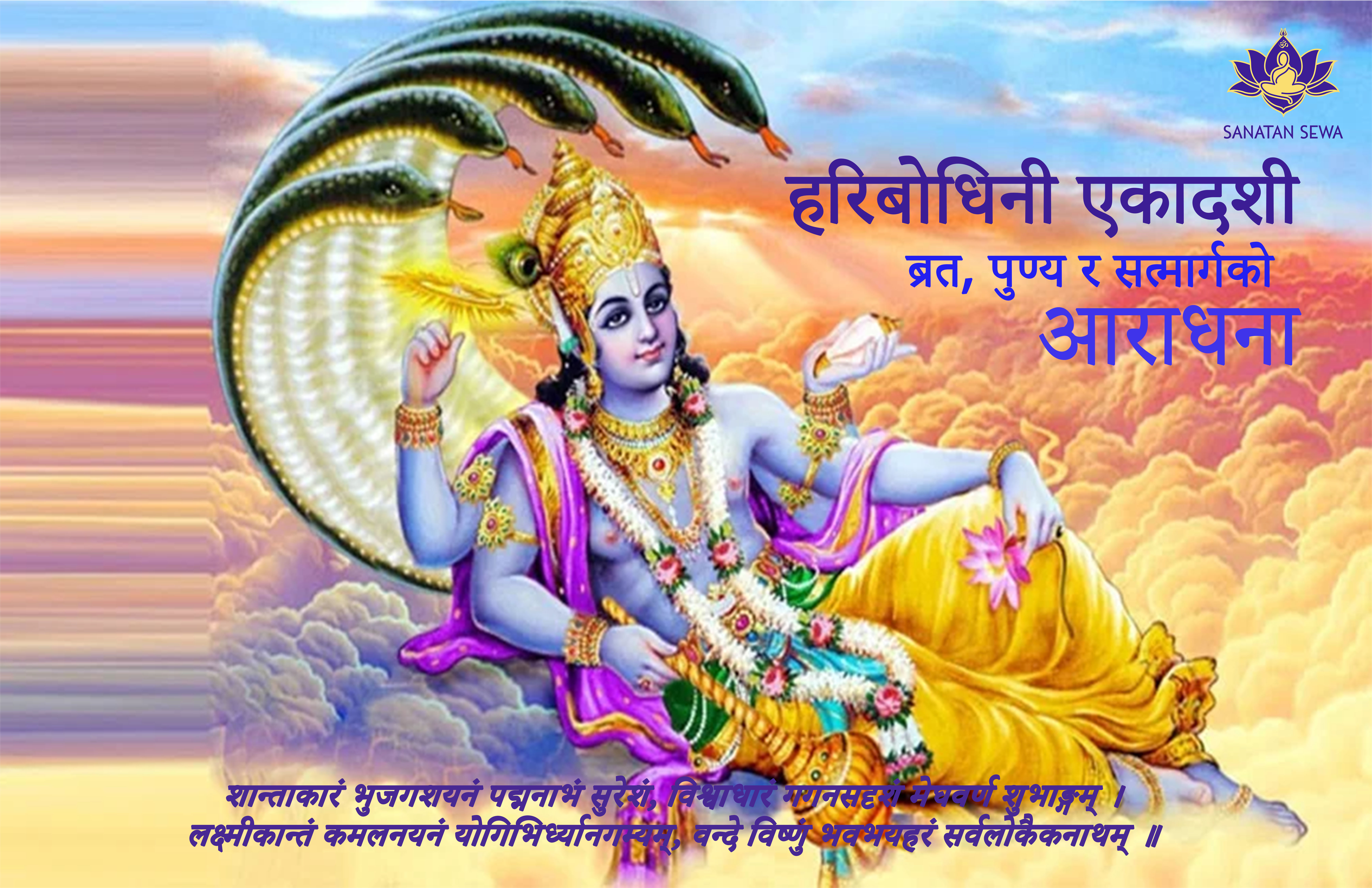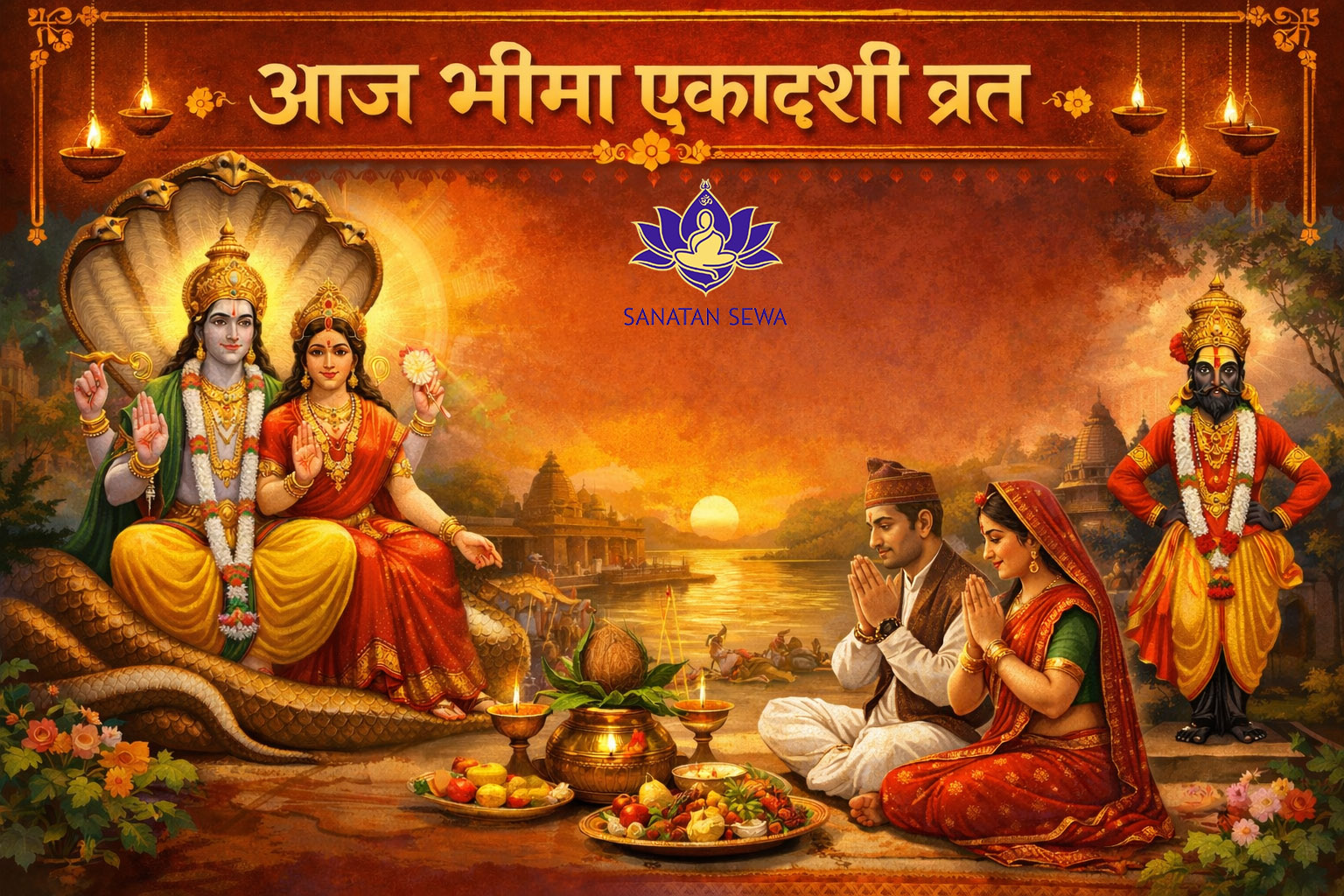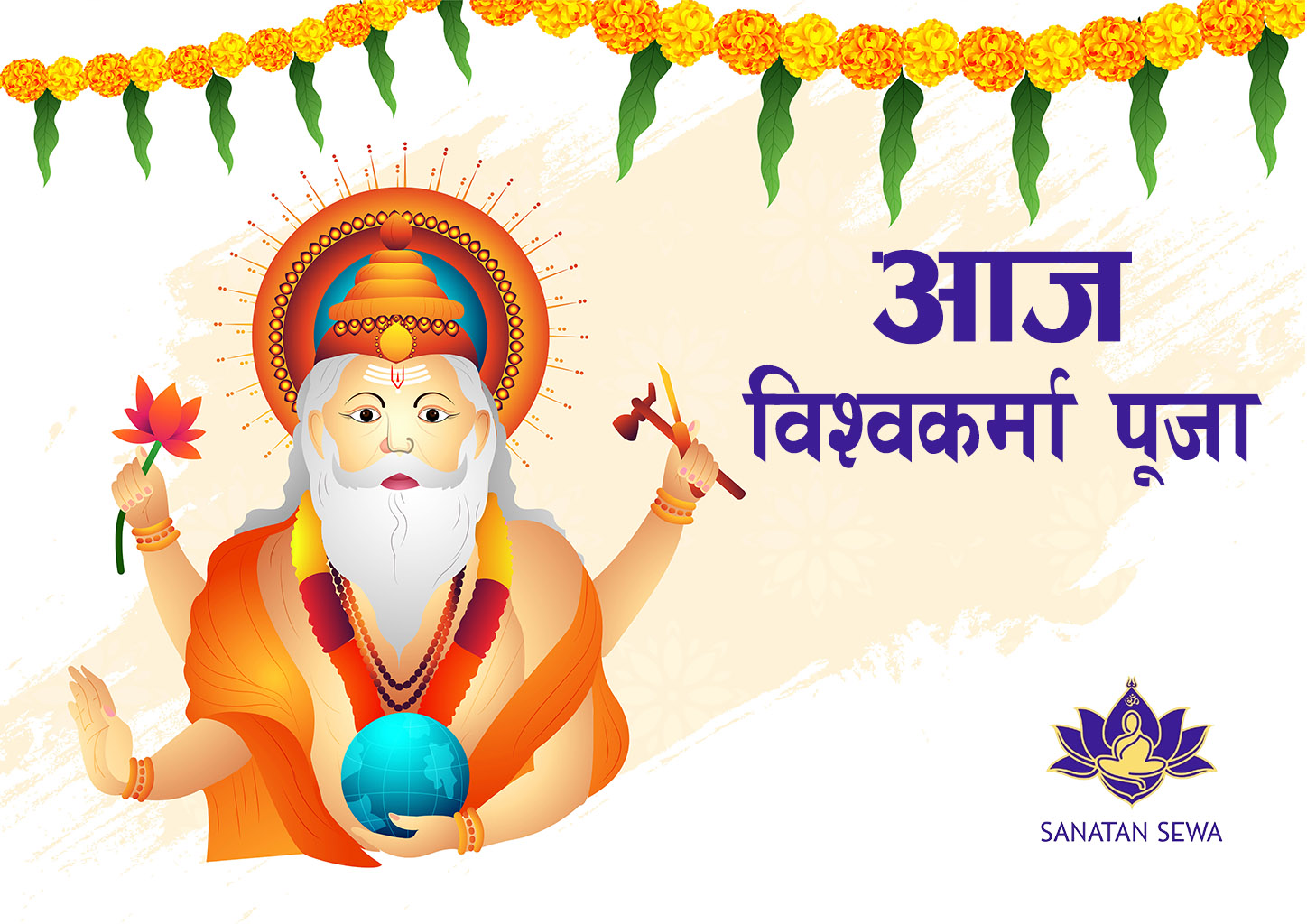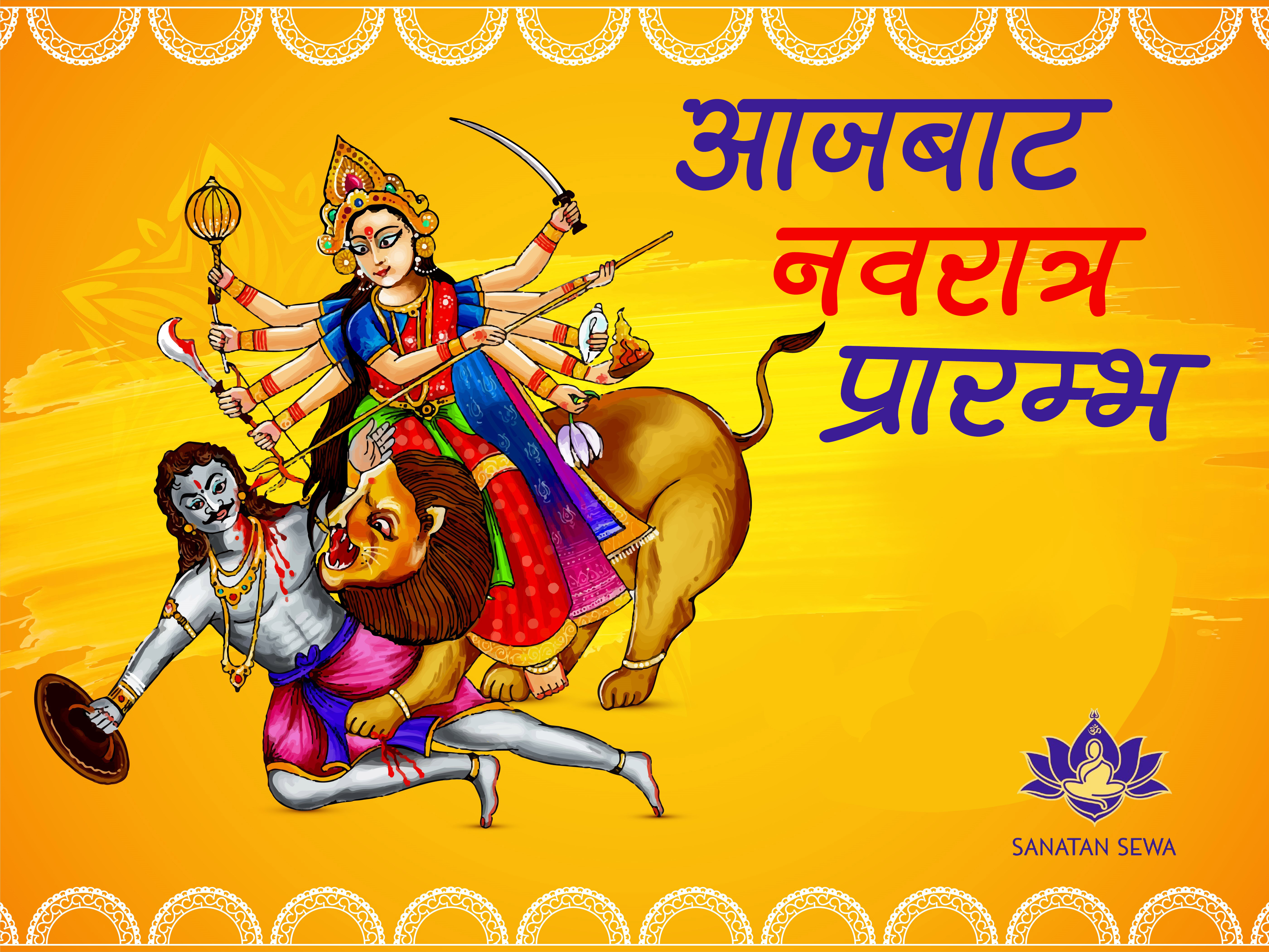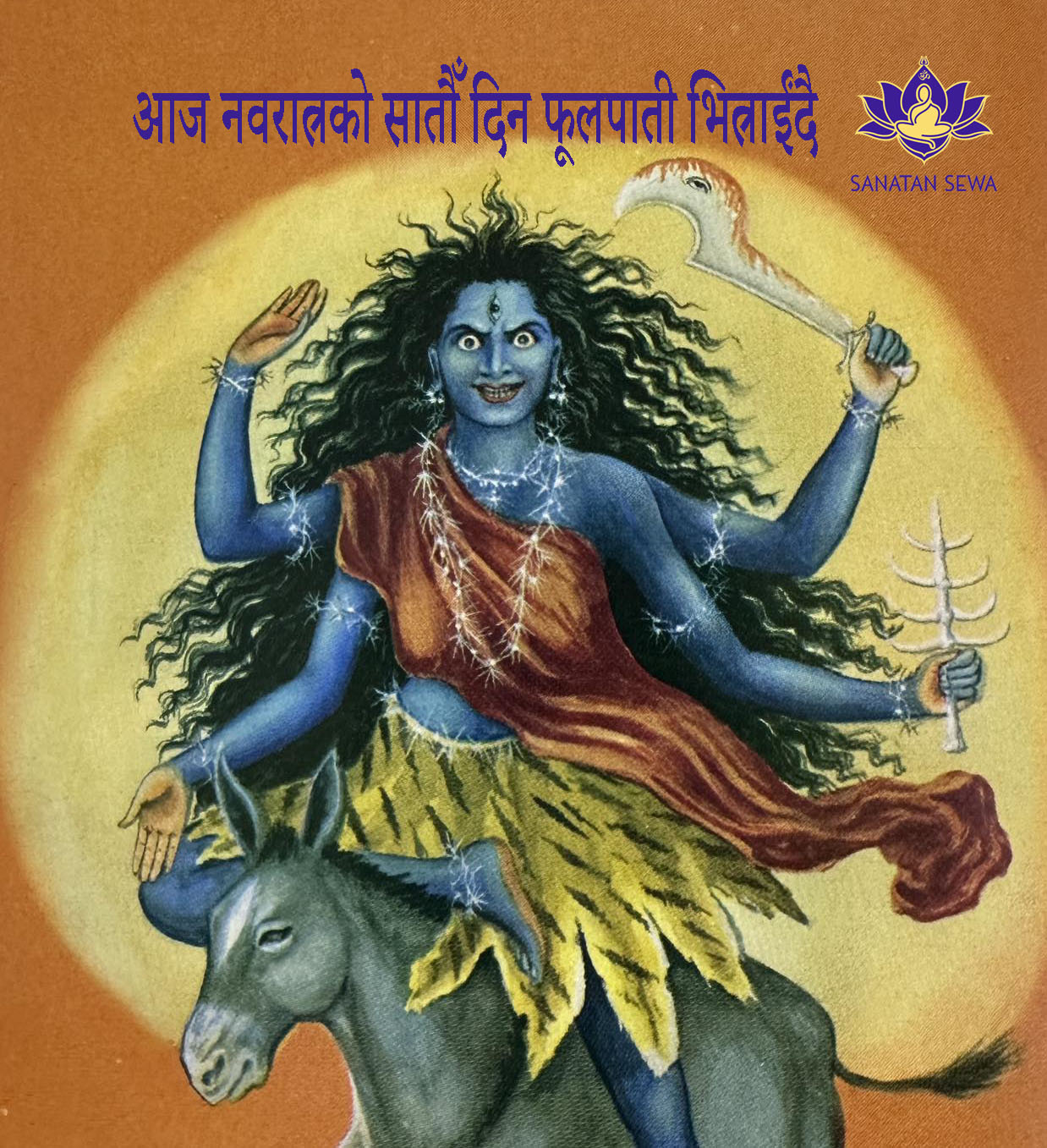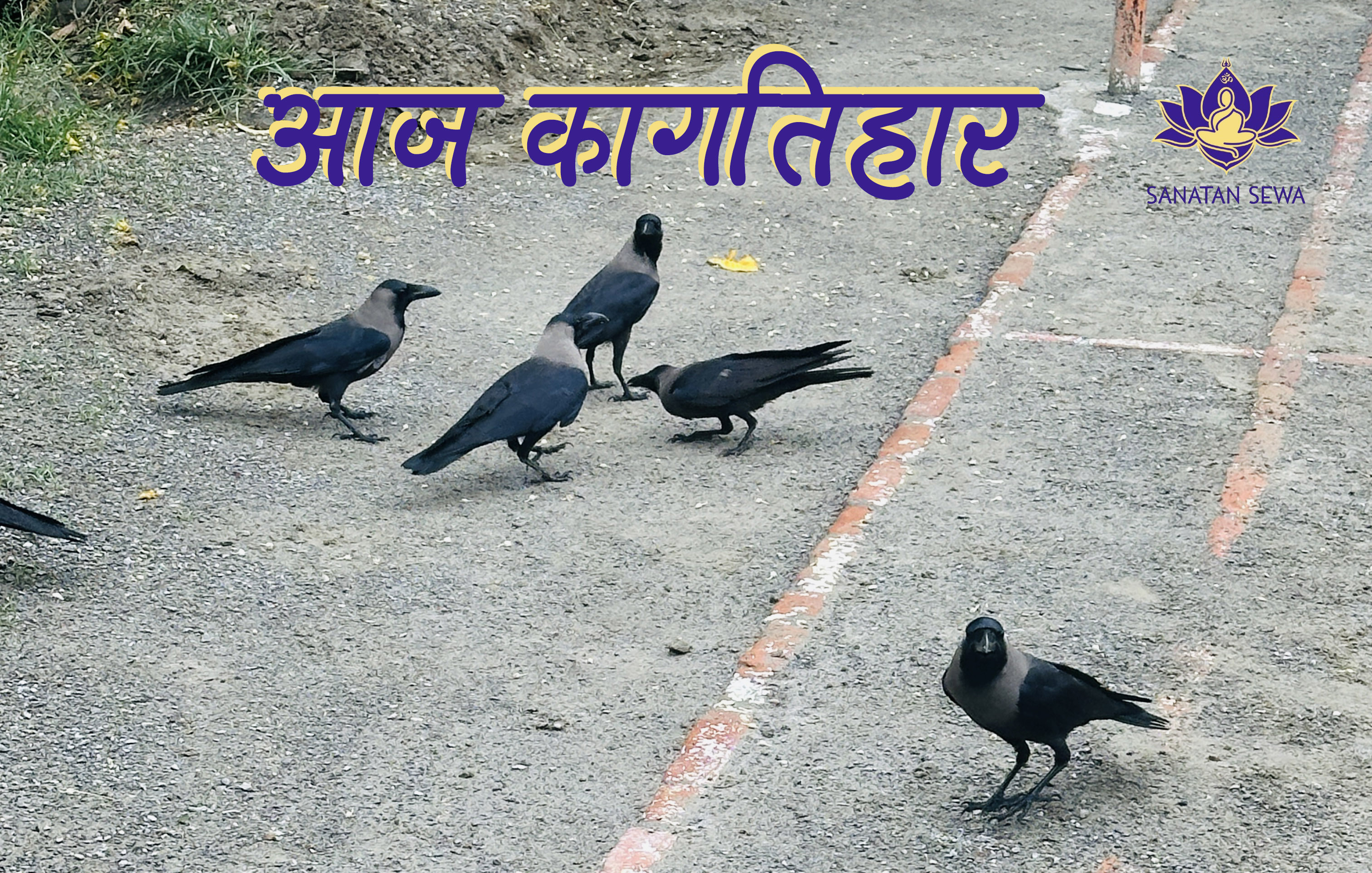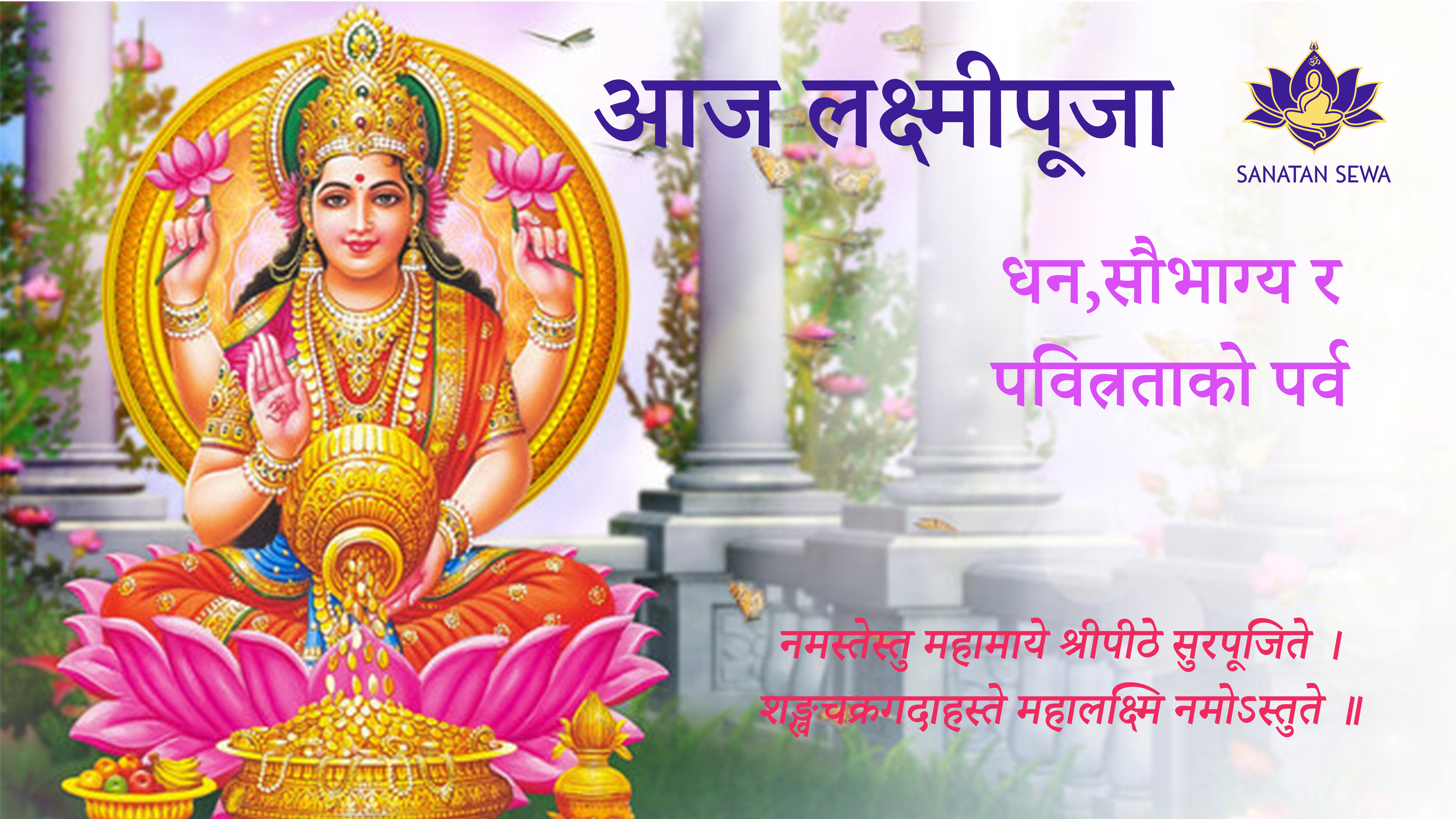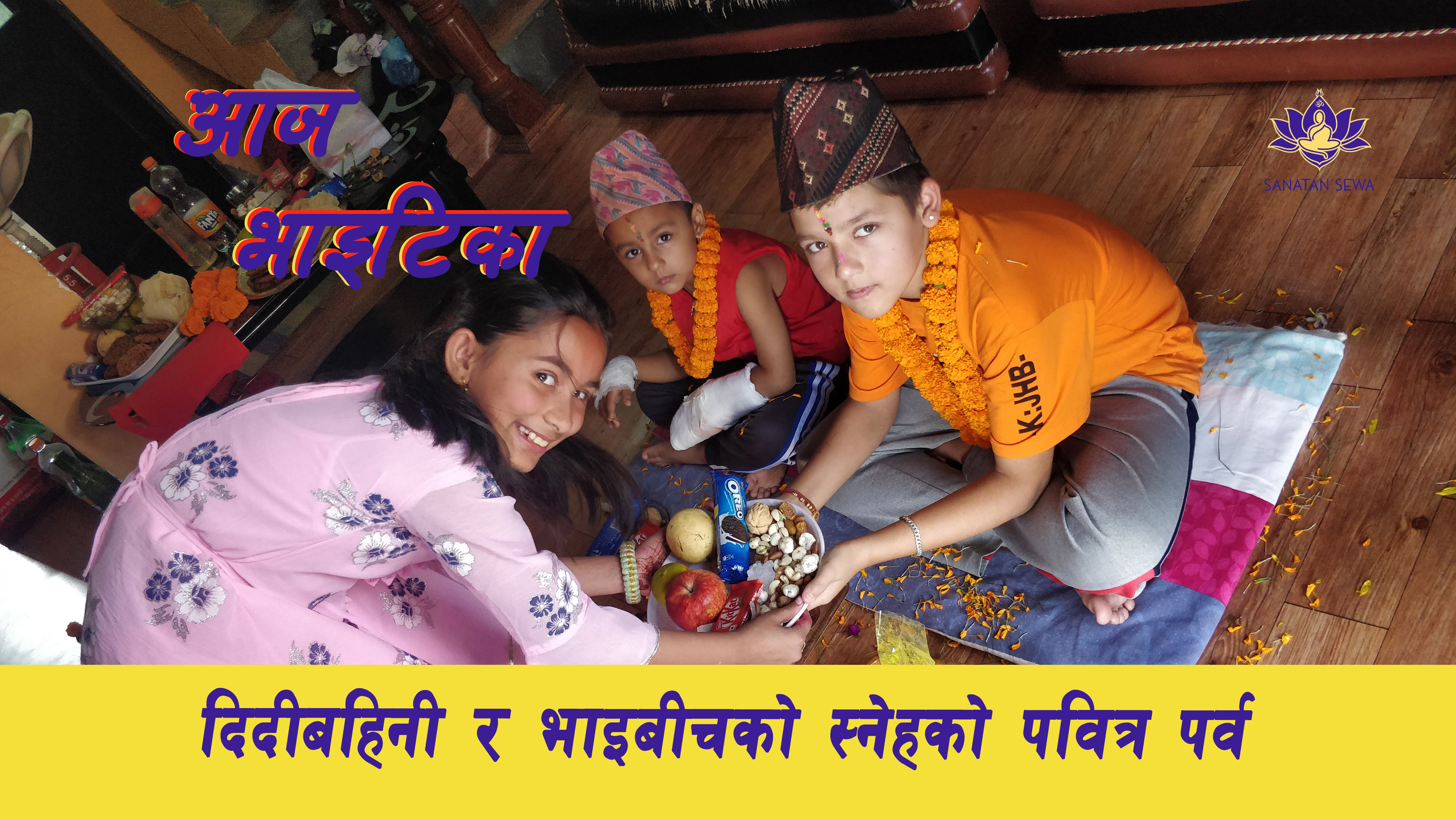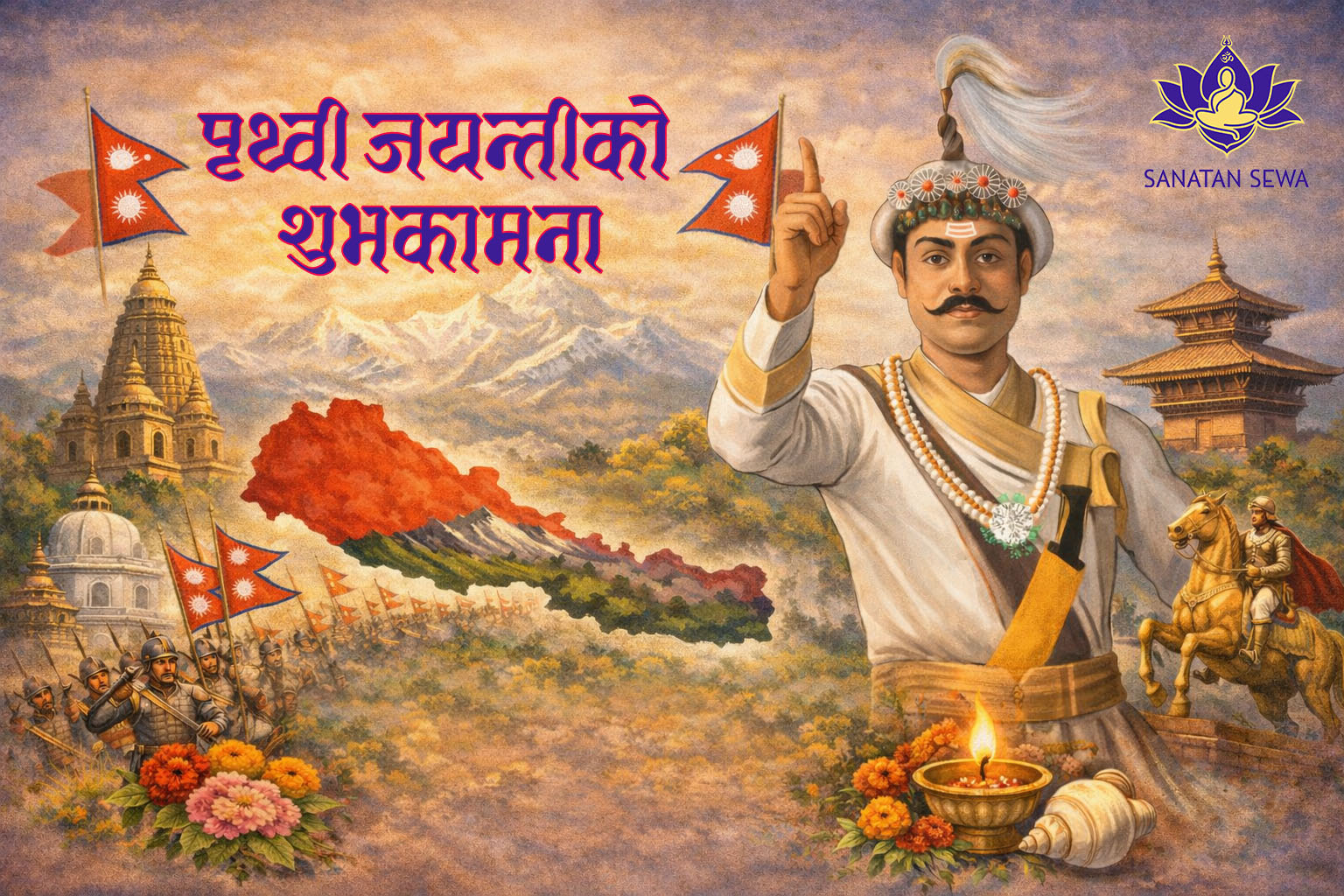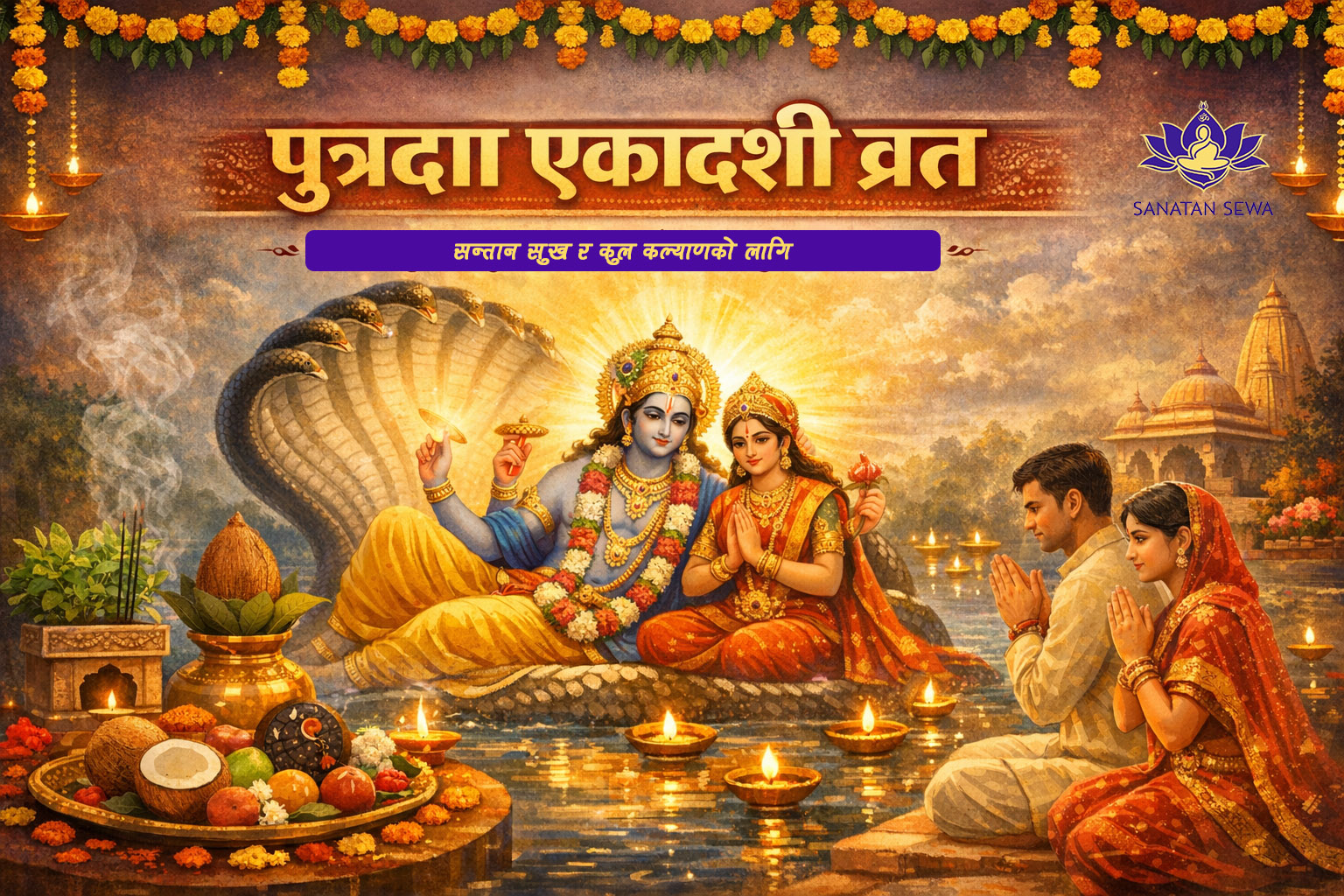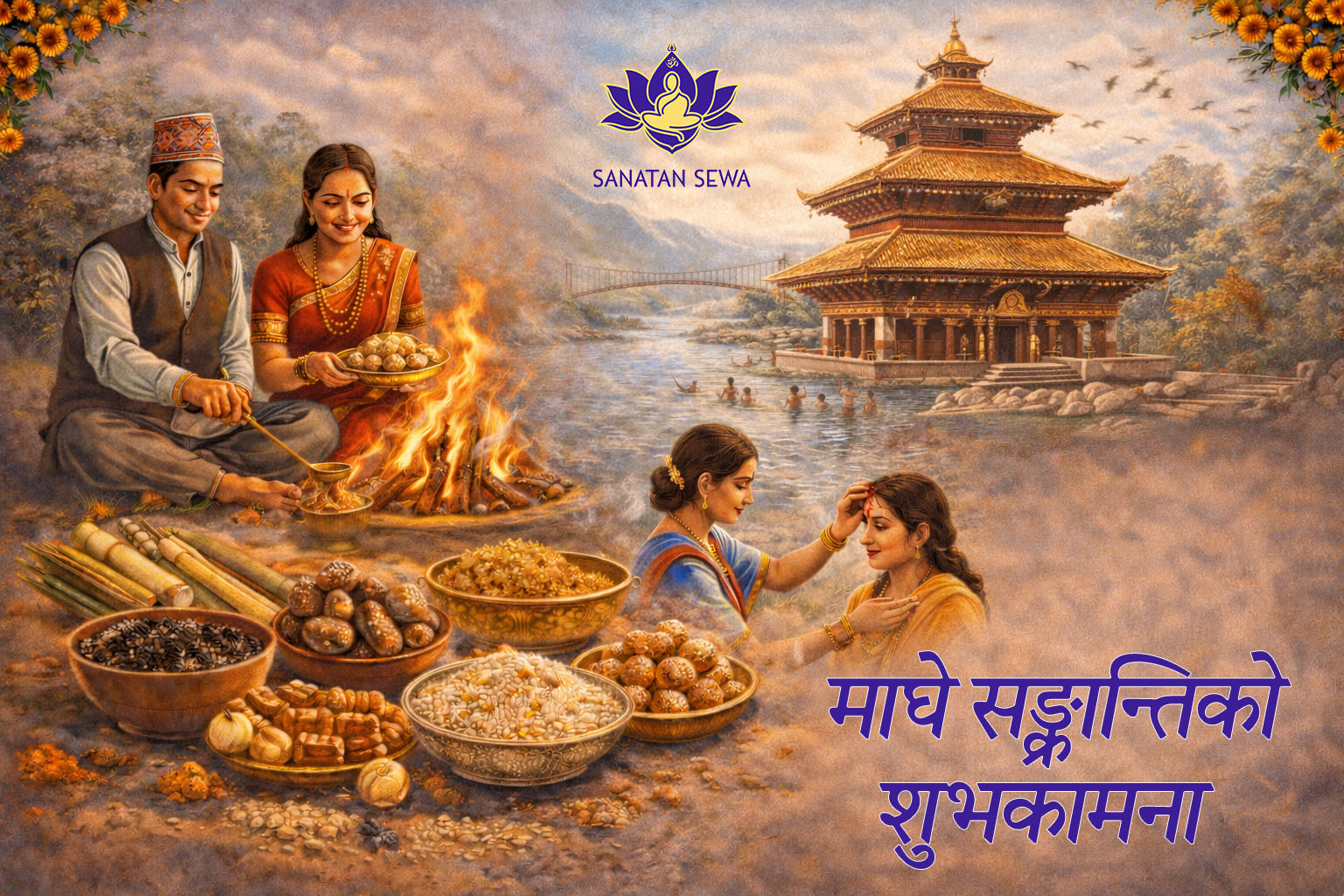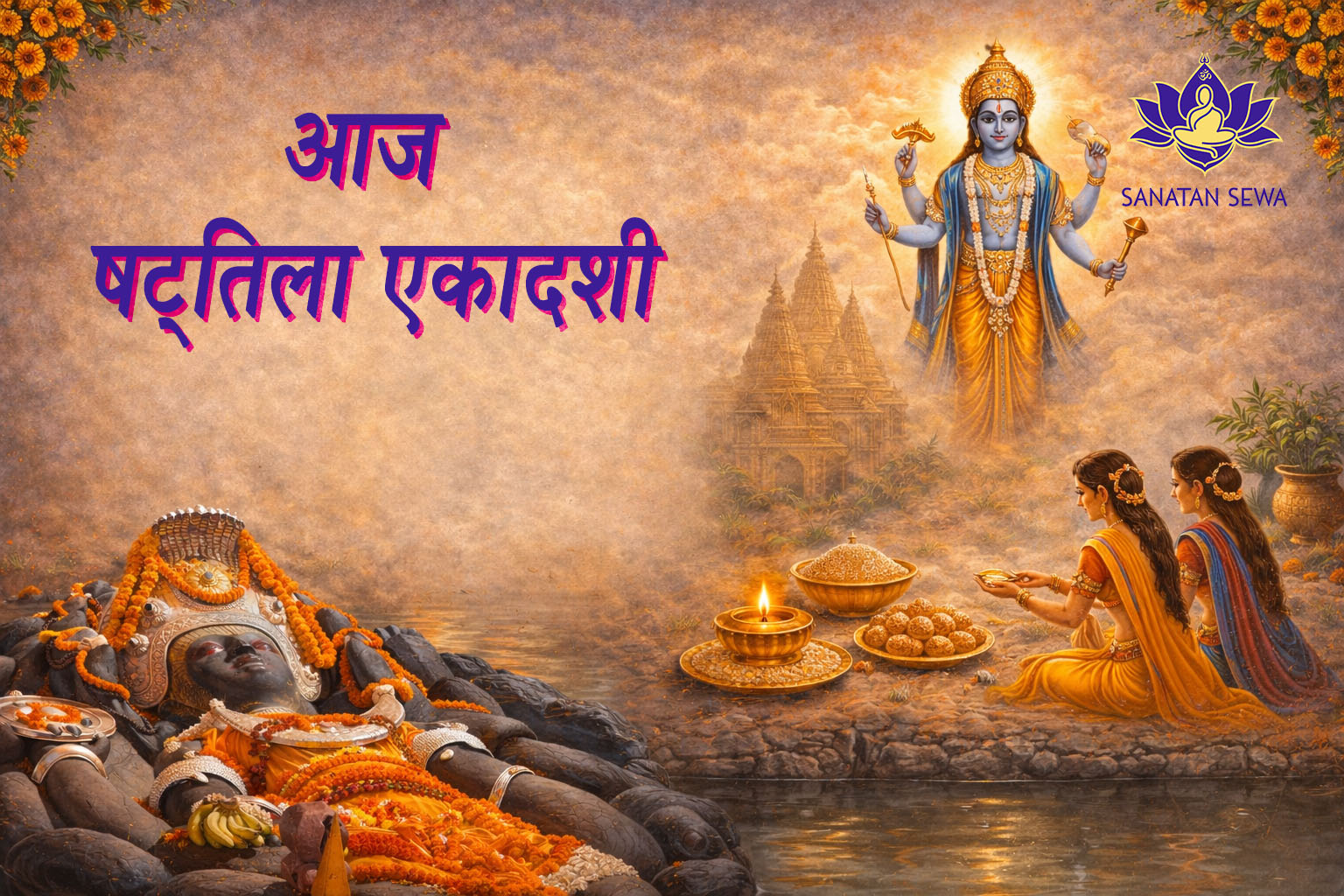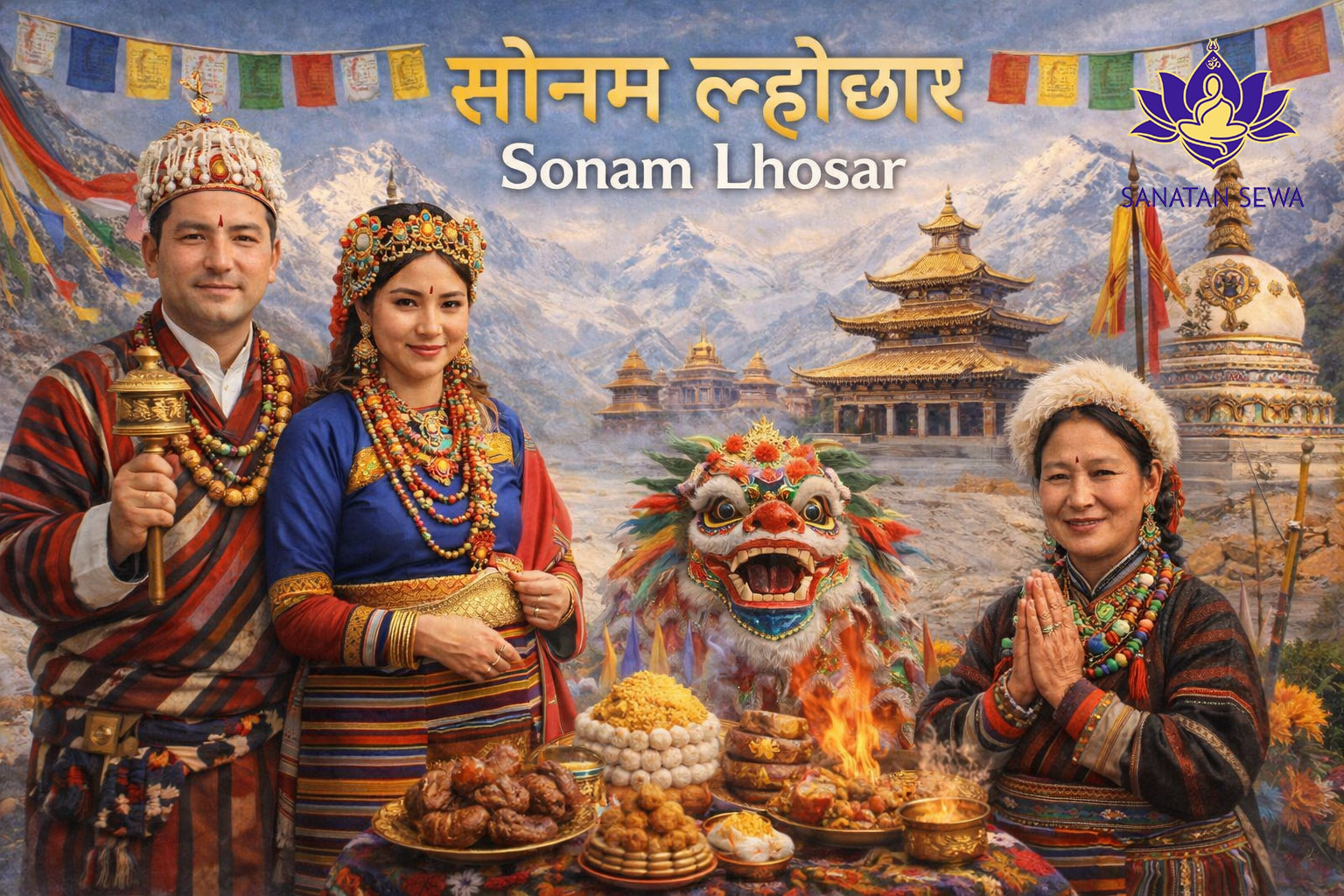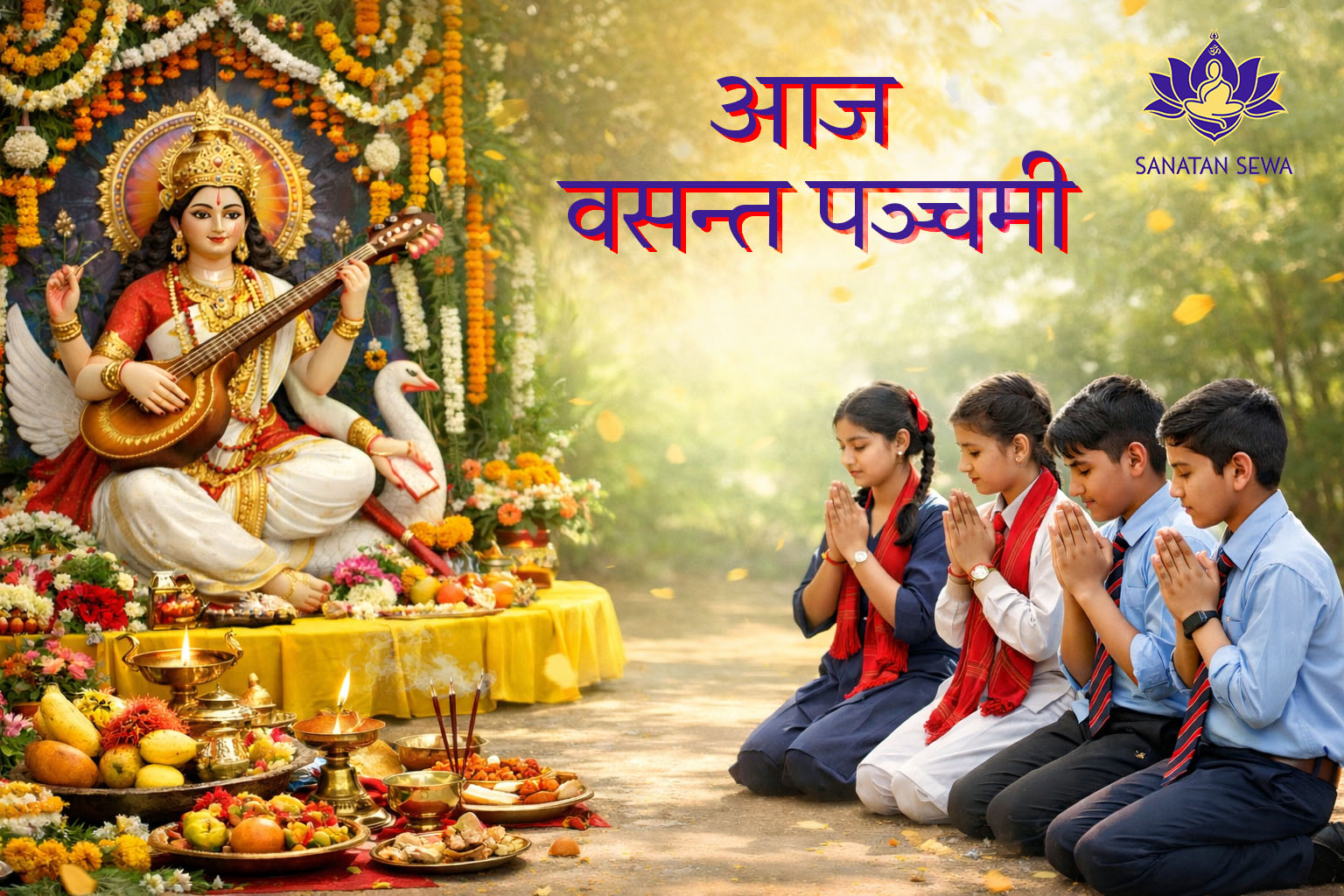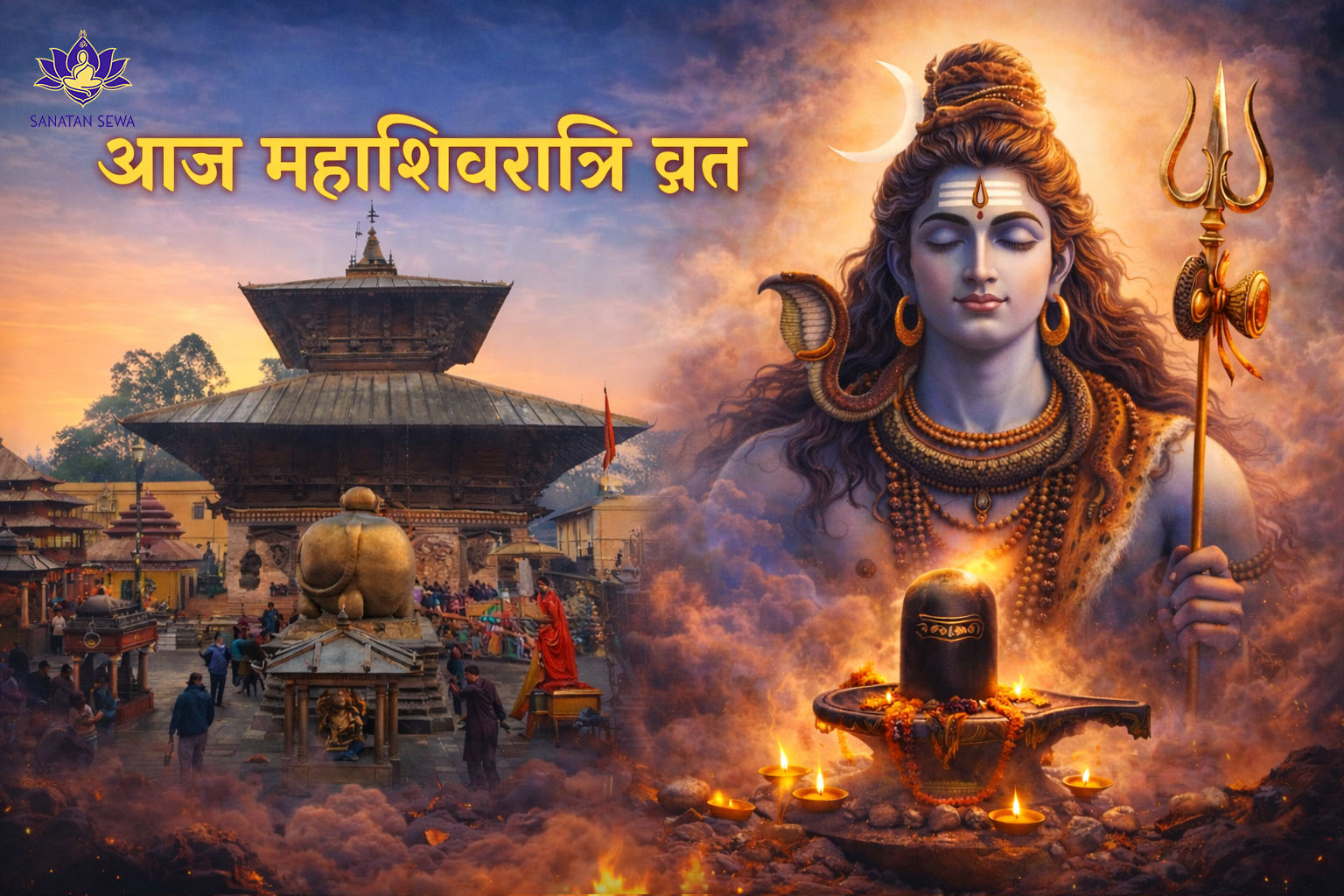Rishi Panchami is an important festival for women in Hindu culture, observed every year on the day following Teej, i.e., on the fifth day (Panchami Tithi) of the bright fortnight of the month of Bhadra. This festival strengthens the bond with the sages (Rishis), and especially women remember the sages, offering reverence to them and purifying their physical body by worshiping the seven sages (Saptarishis) including Arundhati, while fasting. Since it is the Panchami dedicated to the worship of the seven sages, it is called Rishi Panchami.
On this day, women wake up early in the morning and go to nearby rivers, streams, lakes, ponds, or water sources to brush their teeth with 365 datiwans (herbal sticks), and then bathe with cow dung, soil, and ash. After bathing, they traditionally consume Panchagavya (a mixture of cow urine, milk, curd, ghee, and dung). Wearing clean clothes, women then worship the Saptarishis by following special rituals. Some visit temples of the sages, while those unable to do so perform worship either by the riverbanks or at home. They either worship idols or symbolically create sages out of Kusha grass and then, with devotion and guidance from priests, offer sacred items such as Kaas, Kusha, Dubo grass, fruits, and Prasad.
In this ritual, 365 counted items such as Akshata (uncooked rice), barley, sesame seeds, flowers, lamps, betel leaves, areca nuts, etc., are offered to Arundhati along with the sages Atri, Gautama, Bharadwaja, Jamadagni, Vashishtha, Kashyapa, and Vishwamitra. After the worship, women observe fasting by eating a single meal (Havishya) consisting of non-broken grains and simple foods such as Sama rice, Kagu (foxtail millet), colocasia, potato, yam, taro, etc.
According to religious belief, during menstruation, knowingly or unknowingly, if women touch food, utensils, the kitchen, or even men, it is considered a sin (Sparsha Dosha). Therefore, this day is observed as a day of repentance and purification, seeking forgiveness for any intentional or unintentional mistakes or impure acts committed during menstruation. Scriptures mention that a woman during menstruation is considered impure in different stages:
-
On the first day, she is called Chandali
-
On the second day, Brahmaghatini
-
On the third day, Dhobini
-
On the fourth day, after bathing, she becomes pure.
Verse:
Prathame’ahani Chandali, Dvitīye Brahmaghātinī ।
Tṛtīye Rajakī proktā, Chaturthe’hani Shuddhyati ॥
In a mythological context, after Lord Indra killed Vritra, the son of sage Twashta, he had to suffer from the great sin of Brahmahatya (killing a Brahmin). To free himself, that sin was divided into four parts:
-
Into the smoke of fire,
-
Into the foamy and impure waters of rainfall,
-
Into the sticky sap of trees on mountains, and
-
Into the menstruating woman.
To be liberated from this fourth sin, the tradition of worshiping the Saptarishis along with Arundhati and observing a vow (vrata) on this day has been followed since ancient times, as prescribed in scriptures. Even today, women throng to temples of sages, such as the Saptarishi temple at Teku, Kathmandu, and other Risheshwar temples across the country, to perform rituals.
The worship and fasting of this day help strengthen familial love and bonds among family members while also contributing to the preservation and promotion of religious and cultural values. Through this festival, ancient traditions are kept alive and passed down to new generations, spreading the importance of religious education and moral values.
-Jyotishacharya / Vastu Expert Pandit Narayan Prasad Dulal

